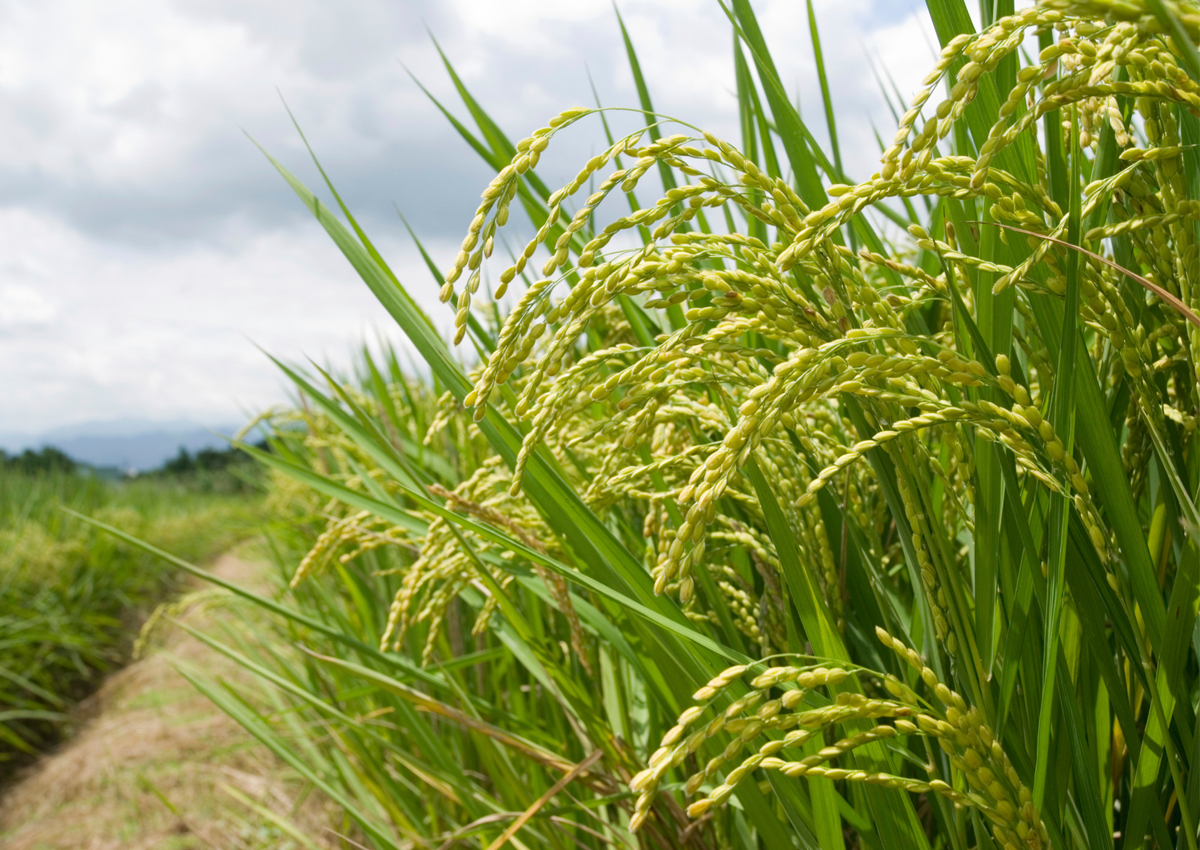
Chinese Academy of Sciences Scientists Clone Gene Responsible for Glufosinate Resistance in Rice
October 25, 2023| |
The researchers subjected the rice seeds to heavy ion irradiation and later screened for resistance to glufosinate. Two individual rice plants, glr1 and glr2, showed resistance. The glr1 mutant showed significant resistance to glufosinate. Through map-based cloning and functional analysis, the researchers revealed that the GLR1 gene encodes ARF18, which belongs to the ARF family of auxin response factors.
The research team also found that GLR1/ARF18 could directly bind to the promoters of downstream genes, including OsGS1, OsCYP51G3, and OsCATA, consequently inhibiting their expression.
In the wild type, glufosinate treatment activated the GLR1 gene, resulting in the suppression of downstream genes associated with the clearance of ammonia and reactive oxygen species (ROS). When the GLR1 gene is mutated, its ability to inhibit the expression of relevant genes is impaired. When this happens, the proteins encoded by these genes remain active, facilitating the efficient clearance of accumulated ammonia and ROS, preventing plant damage and death.
For more details, read the article in the CAS Newsroom.
| |
You might also like:
- China Develops High Dual Herbicide Tolerant Maize
- Pocket K No. 37: Biotech Rice
- Pocket K No. 10: Herbicide Tolerance Technology: Glyphosate and Glufosinate
Biotech Updates is a weekly newsletter of ISAAA, a not-for-profit organization. It is distributed for free to over 22,000 subscribers worldwide to inform them about the key developments in biosciences, especially in biotechnology. Your support will help us in our mission to feed the world with knowledge. You can help by donating as little as $10.
-
See more articles:
-
Plant
- Chinese Academy of Sciences Scientists Clone Gene Responsible for Glufosinate Resistance in Rice
- GM Orchids Exhibit Water-efficient Photosynthesis
- IRRI Scientists Discover Genes for Low and Ultra-low Glycemic Index Rice
- China Takes a Step Closer to Boosting Production of GM Corn and Soybean
-
Health
- Novel Method for Efficient Transport of Large Genes
-
Environment
- Researchers Develop Artificial Protein That Can Degrade Microplastics
-
Read the latest: - Biotech Updates (December 17, 2025)
- Gene Editing Supplement (December 17, 2025)
- Gene Drive Supplement (February 22, 2023)
-
Subscribe to BU: - Share
- Tweet

